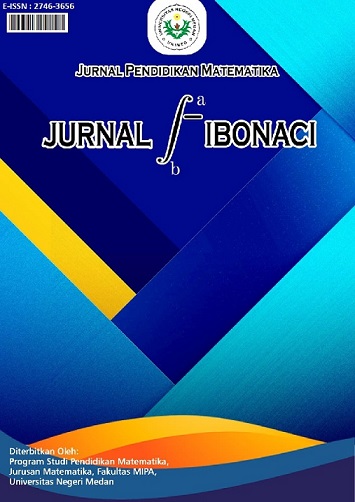The Application of Realistic Approach to Improve the Mathematical Problem Solving Abilities of Grade VIII at SMP Negeri 2 Tebing Tinggi
Main Article Content
Abstract
The aim of this research is to improve mathematical problem solving ablity with realistic approach in the students of grade VIII at SMP Negeri 2 Tebing Tinggi. The design of this research is Class Action Research (PTK) that consists of 2 cycles. The material used in this research is probability material. The object of this research is students' mathematical problem solving ability by applying realistic approach to probability material. The subject ini this research were 36 students of grade VIII-7 at SMP Negeri 2 Tebing Tinggi. The results of this research are: (1) In the initial test, only 1 student (2,2%) achieved the classroom mastery and the average score of students’ ability is in the very low category. (2) In the Cycle I, there was an improvement, with 18 students (50%) achieved the classroom mastery and the average score of students’ ability is 64,5 with a level of ability in the low category. (3) In the Cycle II, there was further improvement, with 32 students (88,9%) achieved the classroom mastery and the average score of students’ ability is 83,1 with a level of ability in the high category. Thus, it can be concluded that the application of realistic approach can improve the mathematical problem solving ability
Article Details
Section
Articles

This work is licensed under a Creative Commons Attribution-NonCommercial-ShareAlike 4.0 International License.
Authors who publish articles in this journal agree to the following terms:
- Authors retain copyright of the article and grant the journal right of first publication with the work simultaneously licensed under a CC-BY-SA or The Creative Commons Attribution–ShareAlike License.
- Authors are able to enter into separate, additional contractual arrangements for the non-exclusive distribution of the journal's published version of the work (e.g., post it to an institutional repository or publish it in a book), with an acknowledgment of its initial publication in this journal.
- Authors are permitted and encouraged to post their work online (e.g., in institutional repositories or on their website) prior to and during the submission process, as it can lead to productive exchanges, as well as earlier and greater citation of published work (See The Effect of Open Access).
